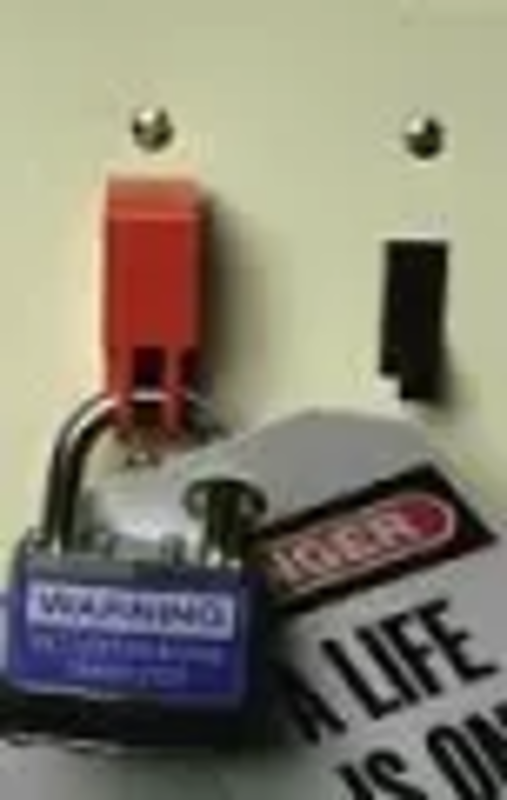Plug and Switch Lockouts

Lockouts are also known as “tag outs,” and hence the term
lockout/tag out is often seen in tandem. A lockout/tag out refers to a
procedure whereby a company assigns an individual to shut down power and
disconnect all equipment and machinery from its primary energy source. The
reason for doing so is in an emergency when becoming necessary to prevent the
unexpected activation of that machinery as a means to protect workers and
employees. The assigned employee then activates the energy-isolation (lockout/tag
out) devices in a safe or “off” position.
Lockouts and Tag Outs — the Difference
Lockouts are physical barriers that prevent machinery from
becoming energized. To this end they are often strong and durable, can usually
only be opened with a key or other unlocking apparatus, but in some cases they
are designed to be opened only through destroying them.
Tag outs, on the other hand, are typically signs or other cautionary instruments that an authorized employee attaches to an energy-isolating device. The sign warns other employees against restarting the machine for the duration of its maintenance period. To the degree that tag out devices can be removed without destroying them, they cannot guarantee against energy-related injury as well as lockout devices.
Plug and Switch Lockouts
Plug and Switch Lockouts are lockouts specifically designed to lockout the plugs and/or switches used to restart a machine or piece of equipment. Plug and switch lockouts can be contrasted, for example, to circuit breaker lockouts, which immediately discontinue any electrical flow, or to other types of lockouts. Safety Idesco’s plug and switch lockouts fit 110V and 220/440V plugs.
Lockout/Tag Out Rules and Procedures
Subpart O (Machinery and Machine Guarding) of the Electronic Code of Federal Regulations (CFR), a department of the Occupational Safety and Health Administration (OSHA) provides standard instruction for dealing with regular maintenance activities. However, workers must further abide by lockout/tag out procedures when:
- Positioning any part of their body in or near a machine’s normal range of operation
- Position any part of their body near a machine’s known danger zone
- Remove, deactivate or bypass safety devices or other machine guards